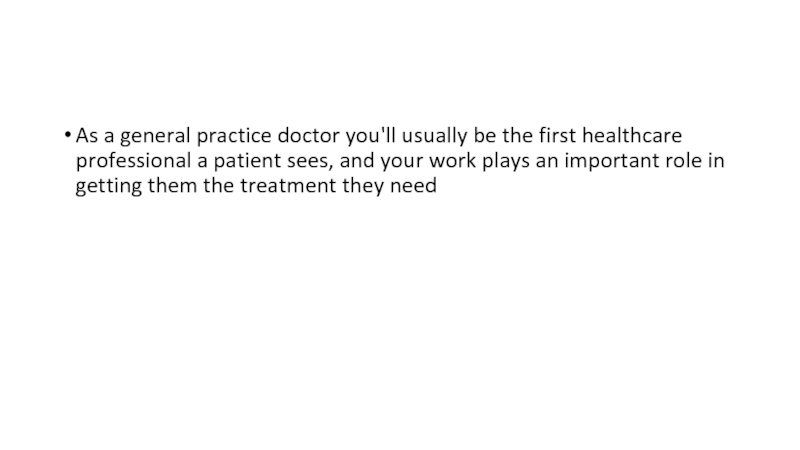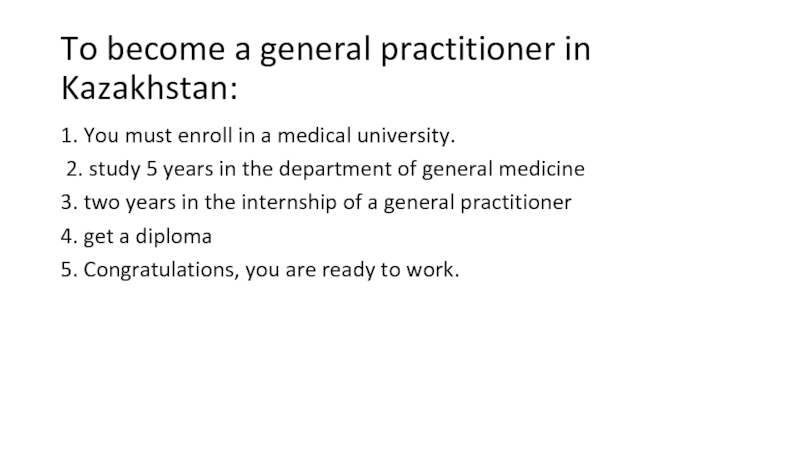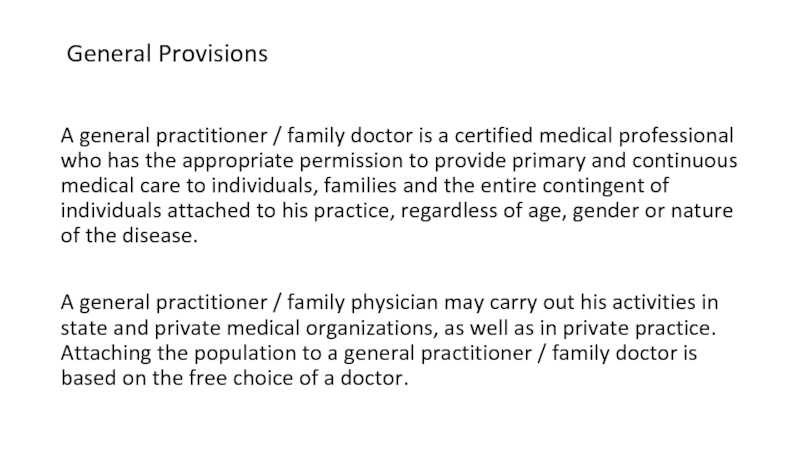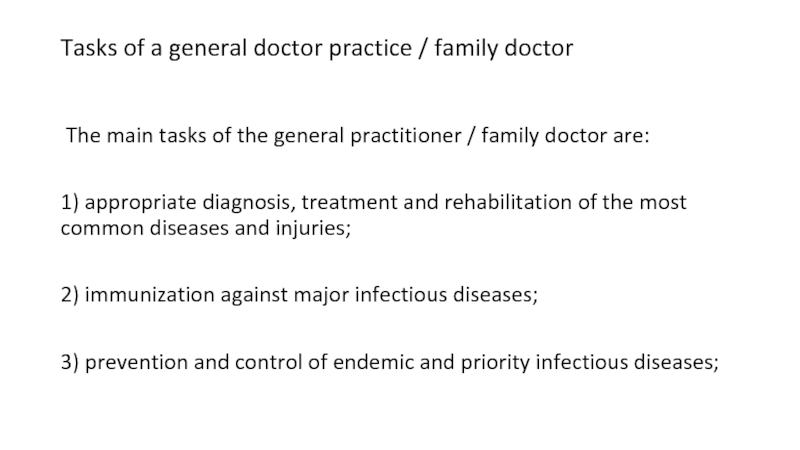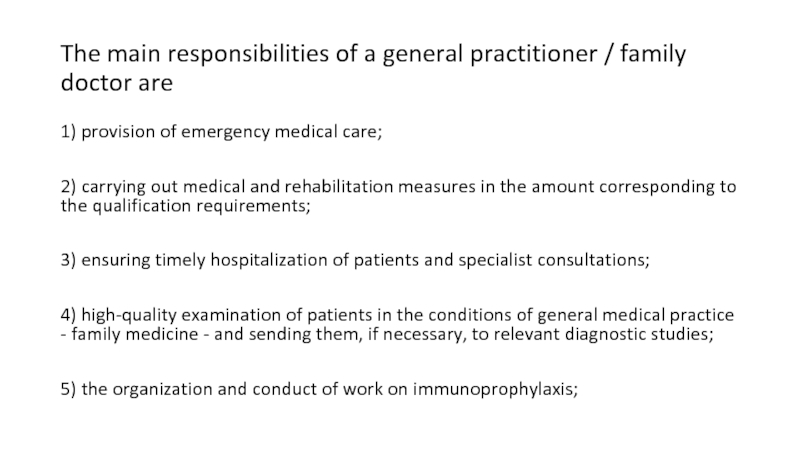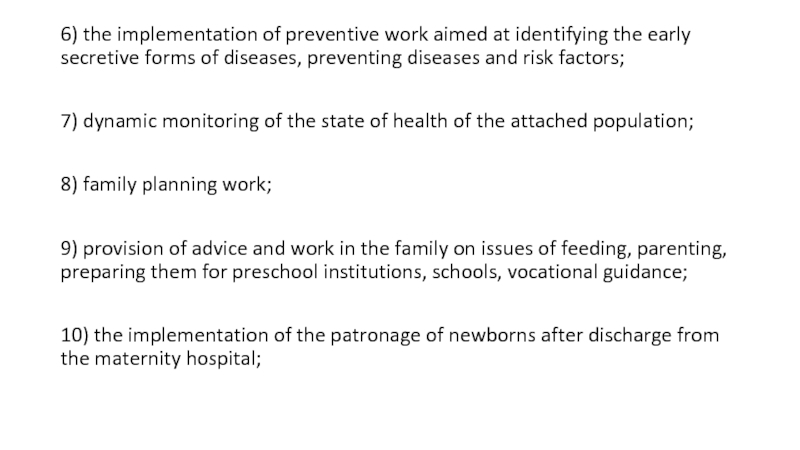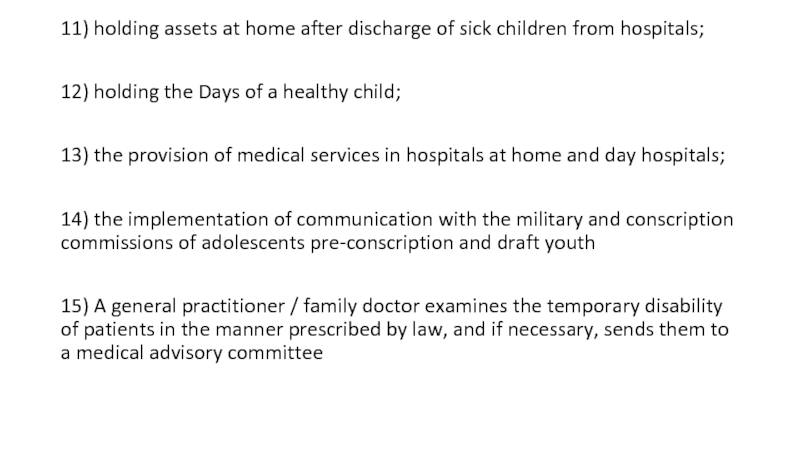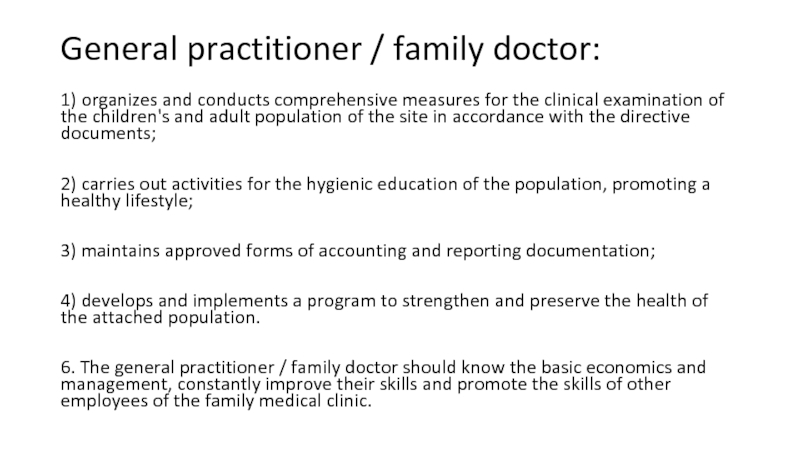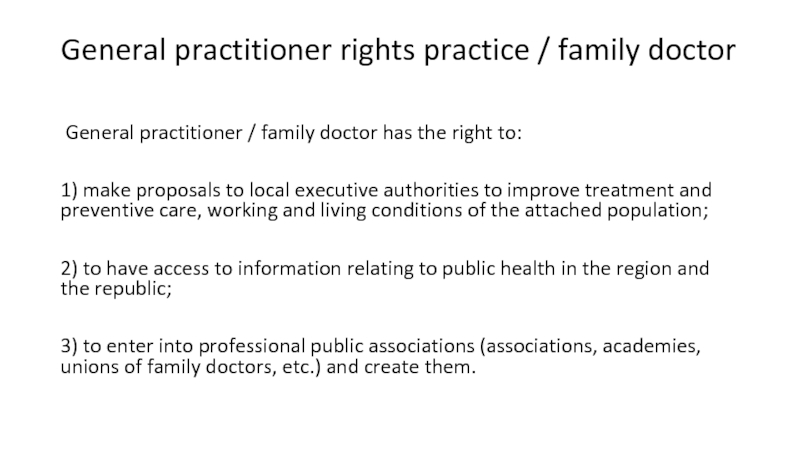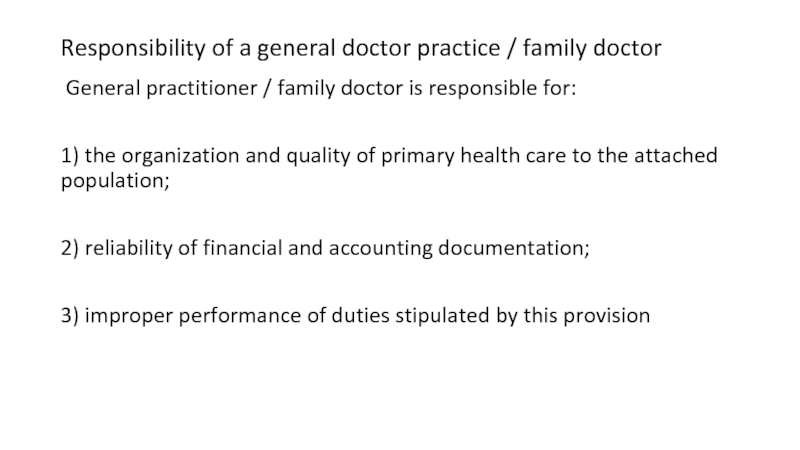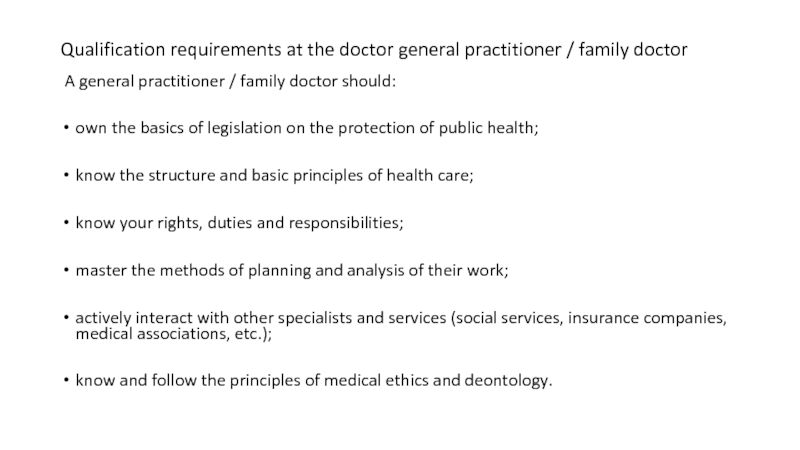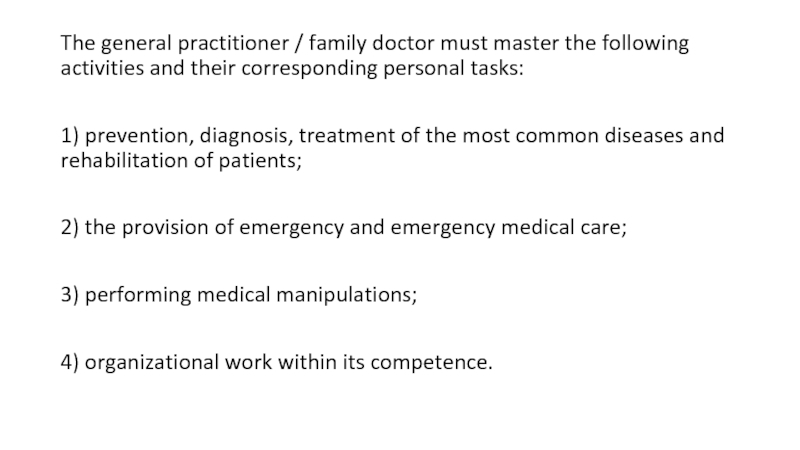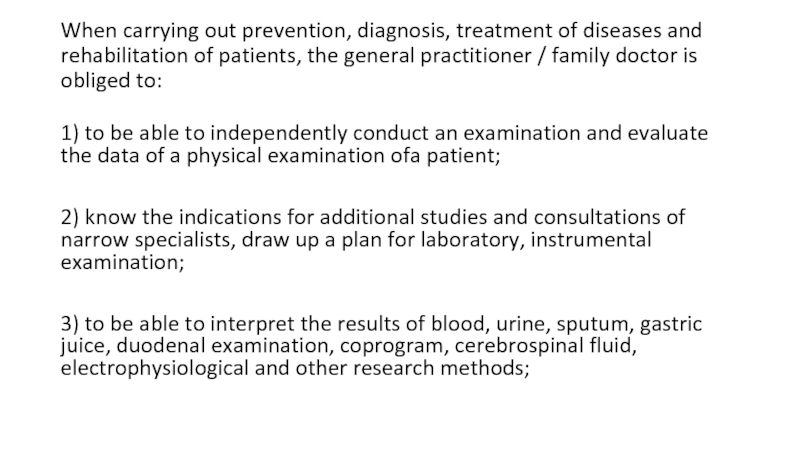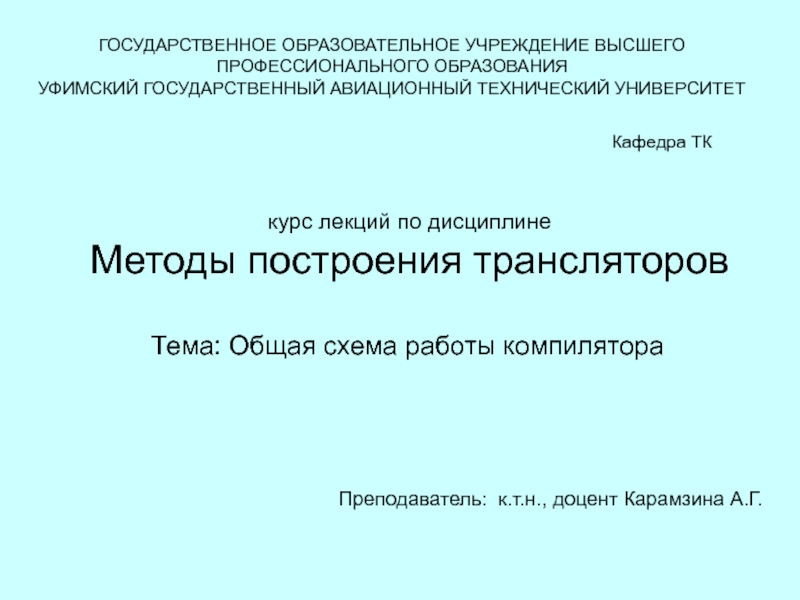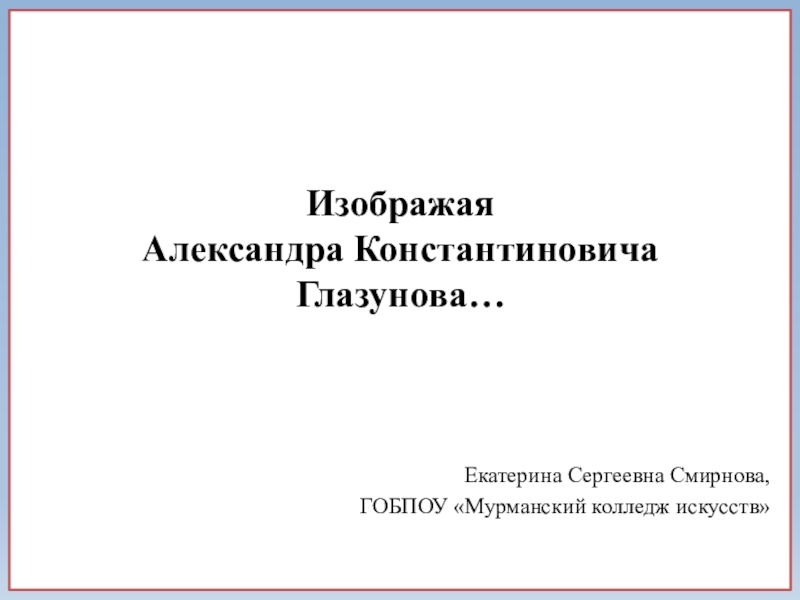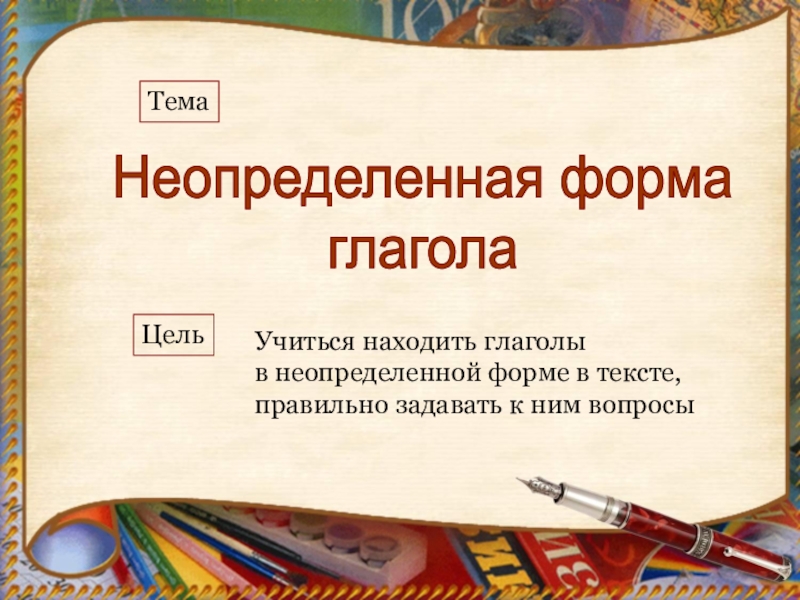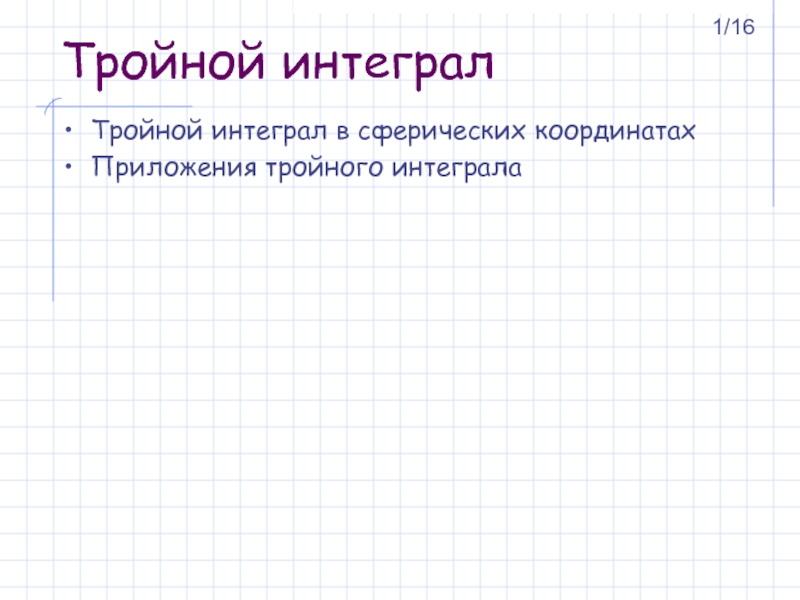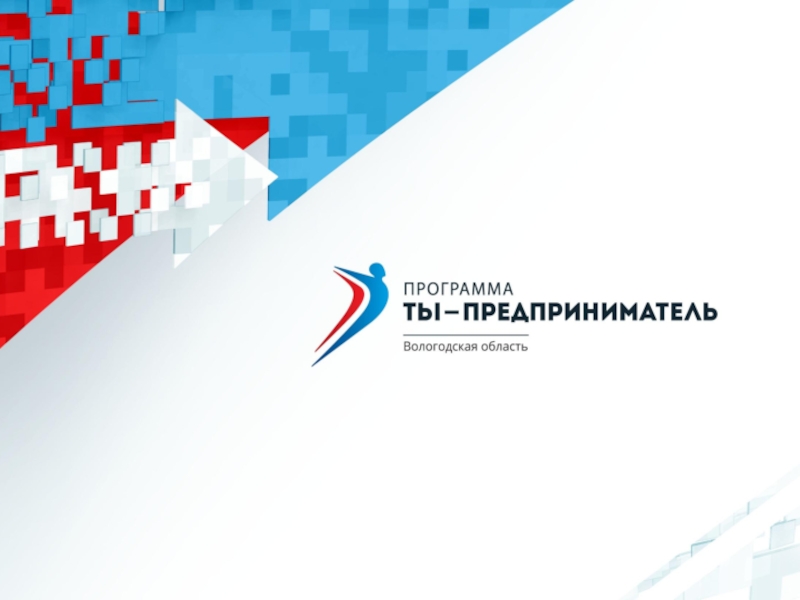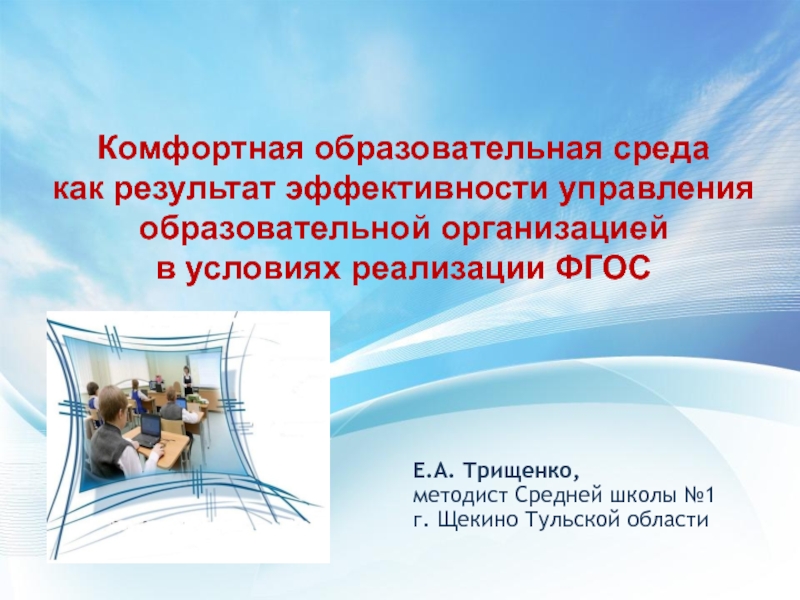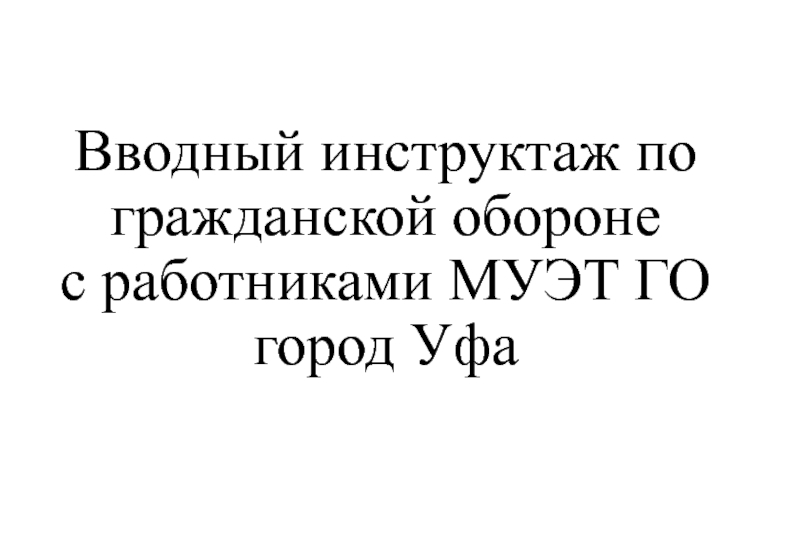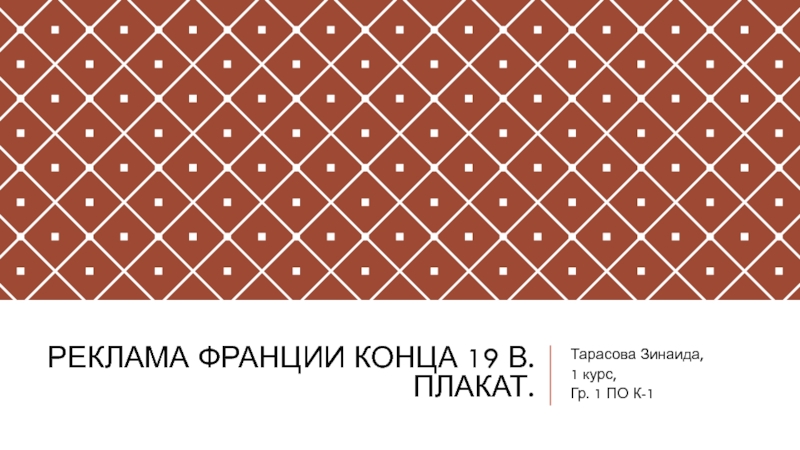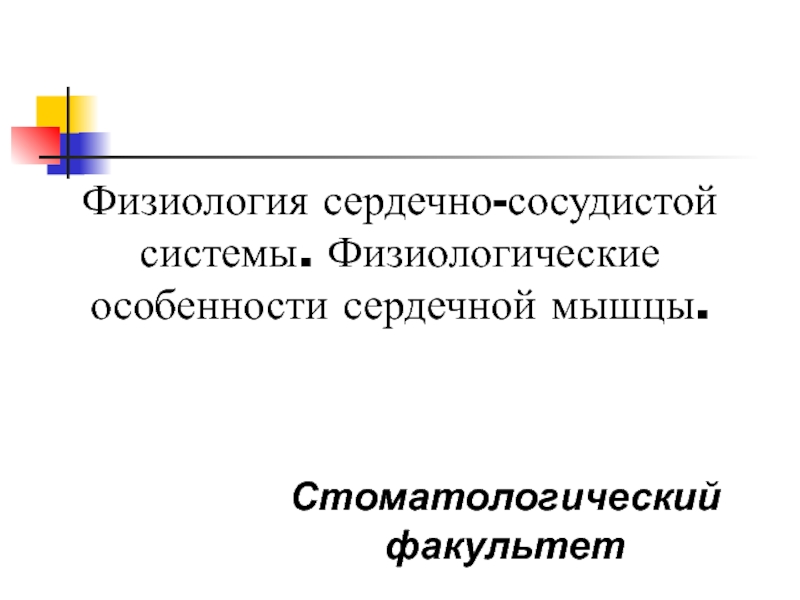Разделы презентаций
- Разное
- Английский язык
- Астрономия
- Алгебра
- Биология
- География
- Геометрия
- Детские презентации
- Информатика
- История
- Литература
- Математика
- Медицина
- Менеджмент
- Музыка
- МХК
- Немецкий язык
- ОБЖ
- Обществознание
- Окружающий мир
- Педагогика
- Русский язык
- Технология
- Физика
- Философия
- Химия
- Шаблоны, картинки для презентаций
- Экология
- Экономика
- Юриспруденция
свриырва
Содержание
- 1. свриырва
- 2. Слайд 2
- 3. As a general practice doctor you'll usually
- 4. To become a general practitioner in Kazakhstan:1.
- 5. The position of the Health Committee of
- 6. General Provisions A general practitioner /
- 7. Tasks of a general doctor practice /
- 8. 4) maternal and child health, including family
- 9. The main responsibilities of a general practitioner
- 10. 6) the implementation of preventive work aimed
- 11. 11) holding assets at home after discharge
- 12. General practitioner / family doctor: 1) organizes
- 13. General practitioner rights practice / family doctor
- 14. Responsibility of a general doctor practice /
- 15. Qualification requirements at the doctor general practitioner
- 16. The general practitioner / family doctor must
- 17. When carrying out prevention, diagnosis, treatment of
- 18. Слайд 18
- 19. Скачать презентанцию
Слайды и текст этой презентации
Слайд 4To become a general practitioner in Kazakhstan:
1. You must enroll
in a medical university.
2. study 5 years in the
department of general medicine 3. two years in the internship of a general practitioner
4. get a diploma
5. Congratulations, you are ready to work.
Слайд 5The position of the Health Committee of 10/12/1999 N 500
* "REGULATION ON GENERAL PRACTICE DOCTORS (FAMILY DOCTORS)"
MINISTRY OF HEALTH,
EDUCATION AND SPORT REPUBLIC OF KAZAKHSTANCOMMITTEE OF HEALTH
Слайд 6 General Provisions
A general practitioner / family doctor is a
certified medical professional who has the appropriate permission to provide
primary and continuous medical care to individuals, families and the entire contingent of individuals attached to his practice, regardless of age, gender or nature of the disease.A general practitioner / family physician may carry out his activities in state and private medical organizations, as well as in private practice. Attaching the population to a general practitioner / family doctor is based on the free choice of a doctor.
Слайд 7Tasks of a general doctor practice / family doctor
The
main tasks of the general practitioner / family doctor are:
1)
appropriate diagnosis, treatment and rehabilitation of the most common diseases and injuries;2) immunization against major infectious diseases;
3) prevention and control of endemic and priority infectious diseases;
Слайд 84) maternal and child health, including family planning;
5) hygienic education,
the formation of a healthy lifestyle;
6) facilitating the supply of
high-quality food products and recommendations of sanitary measures;8) rational prescription and use of drugs in accordance with the medicinal formulary and modern treatment protocols.
Слайд 9The main responsibilities of a general practitioner / family doctor
are
1) provision of emergency medical care;
2) carrying out medical and
rehabilitation measures in the amount corresponding to the qualification requirements;3) ensuring timely hospitalization of patients and specialist consultations;
4) high-quality examination of patients in the conditions of general medical practice - family medicine - and sending them, if necessary, to relevant diagnostic studies;
5) the organization and conduct of work on immunoprophylaxis;
Слайд 106) the implementation of preventive work aimed at identifying the
early secretive forms of diseases, preventing diseases and risk factors;
7)
dynamic monitoring of the state of health of the attached population;8) family planning work;
9) provision of advice and work in the family on issues of feeding, parenting, preparing them for preschool institutions, schools, vocational guidance;
10) the implementation of the patronage of newborns after discharge from the maternity hospital;
Слайд 1111) holding assets at home after discharge of sick children
from hospitals;
12) holding the Days of a healthy child;
13) the
provision of medical services in hospitals at home and day hospitals;14) the implementation of communication with the military and conscription commissions of adolescents pre-conscription and draft youth
15) A general practitioner / family doctor examines the temporary disability of patients in the manner prescribed by law, and if necessary, sends them to a medical advisory committee
Слайд 12General practitioner / family doctor:
1) organizes and conducts comprehensive measures
for the clinical examination of the children's and adult population
of the site in accordance with the directive documents;2) carries out activities for the hygienic education of the population, promoting a healthy lifestyle;
3) maintains approved forms of accounting and reporting documentation;
4) develops and implements a program to strengthen and preserve the health of the attached population.
6. The general practitioner / family doctor should know the basic economics and management, constantly improve their skills and promote the skills of other employees of the family medical clinic.
Слайд 13General practitioner rights practice / family doctor
General practitioner /
family doctor has the right to:
1) make proposals to local
executive authorities to improve treatment and preventive care, working and living conditions of the attached population;2) to have access to information relating to public health in the region and the republic;
3) to enter into professional public associations (associations, academies, unions of family doctors, etc.) and create them.
Слайд 14Responsibility of a general doctor practice / family doctor
General
practitioner / family doctor is responsible for:
1) the organization and
quality of primary health care to the attached population;2) reliability of financial and accounting documentation;
3) improper performance of duties stipulated by this provision
Слайд 15Qualification requirements at the doctor general practitioner / family doctor
A general practitioner / family doctor should:
own the basics of
legislation on the protection of public health;know the structure and basic principles of health care;
know your rights, duties and responsibilities;
master the methods of planning and analysis of their work;
actively interact with other specialists and services (social services, insurance companies, medical associations, etc.);
know and follow the principles of medical ethics and deontology.
Слайд 16The general practitioner / family doctor must master the following
activities and their corresponding personal tasks:
1) prevention, diagnosis, treatment of
the most common diseases and rehabilitation of patients;2) the provision of emergency and emergency medical care;
3) performing medical manipulations;
4) organizational work within its competence.
Слайд 17When carrying out prevention, diagnosis, treatment of diseases and rehabilitation
of patients, the general practitioner / family doctor is obliged
to:1) to be able to independently conduct an examination and evaluate the data of a physical examination ofa patient;
2) know the indications for additional studies and consultations of narrow specialists, draw up a plan for laboratory, instrumental examination;
3) to be able to interpret the results of blood, urine, sputum, gastric juice, duodenal examination, coprogram, cerebrospinal fluid, electrophysiological and other research methods;


